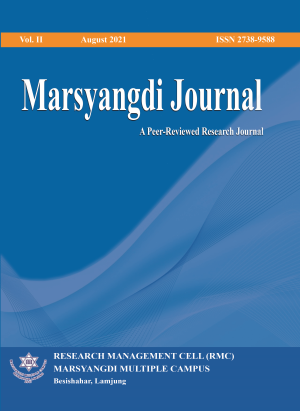A Critical Analysis of English Language Teaching Situation in Nepal
DOI:
https://doi.org/10.3126/mj.v2i1.39962Keywords:
critical pedagogy, English Language Teaching, marginalisation, transformation, oppressionAbstract
Critical pedagogy (CP) is an educational movement that primarily aims to support the students in developing a consciousness of freedom so that they can connect the knowledge to power for social reformation. The supporters of CP argue that language teachers should emphasise developing the social skills of the learners along with language skills. Studies show that many English language teachers may have inadequate knowledge and skills about CP and the spirit of CP may not be followed while designing curriculum and writing textbooks. The purpose of the study was to examine the use of CP in English Language Teaching (ELT) focusing on classroom practices, curriculum designing and textbook writing at the secondary level. For this, I used a qualitative research design in which data were collected from six English teachers through in-depth interviews from three schools. I investigated that while designing curriculum, selecting textbooks, and making ELT policy, CP has not been practically implemented. Language policy, curriculum and textbooks are designed by a specific group and imposed on the teachers and learners. There has been a political influence in ELT policy as well. However, some teachers were found positive to CP and implemented it in the classroom, but they demanded special training.




